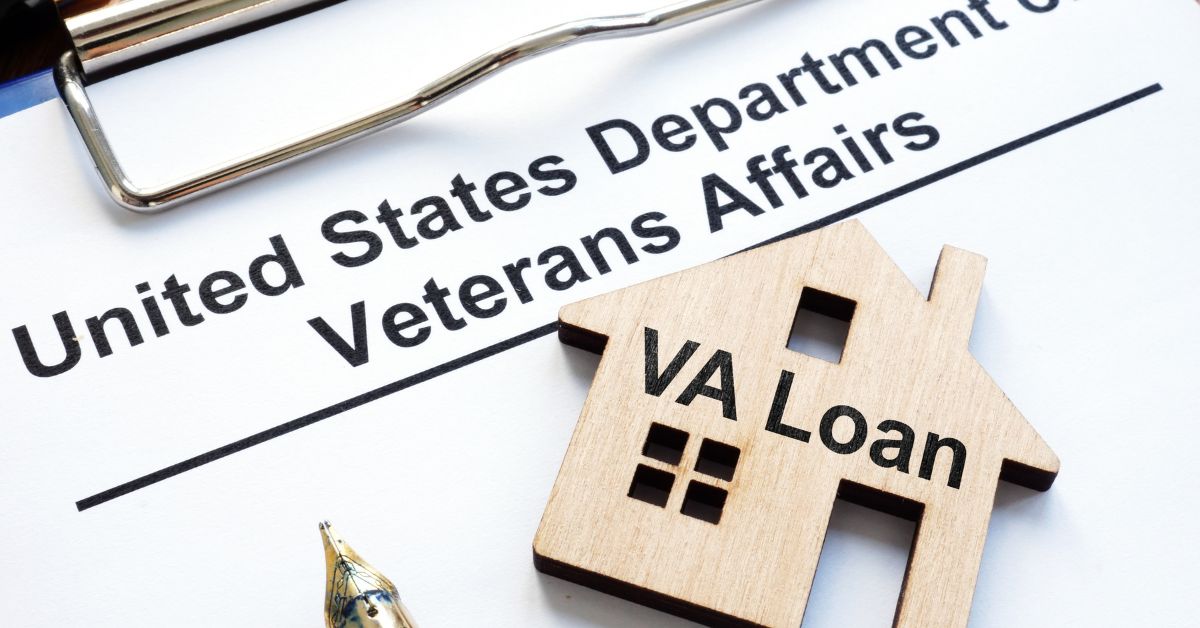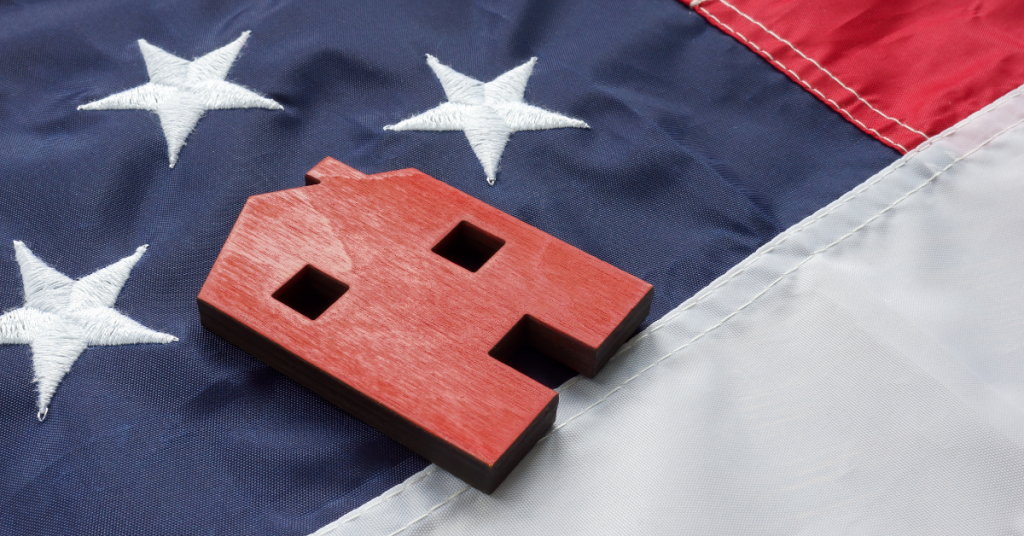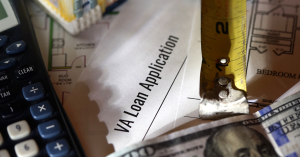The journey to homeownership can be invigorating, but not without its maze of terminologies to navigate. One term that often intrigues potential homeowners is ‘VA Loans.’ These loans have opened doors for millions of American heroes.
But how often do you halt and ask yourself about the diversity within this financing tool? Are you aware that VA loans are not a single, monolithic entity but a vibrant spectrum of types, each bearing its unique hues? In this enlightening journey, I invite you to explore various VA loans, shedding light on each segment while guiding you to identify which best suits your homeownership quest.
Understanding VA Loans
A Veterans Affairs (VA) loan benefits American veterans, active-duty members, and select military spouses. It aims to soften and streamline the path to buying a home for those who serve or have served the nation.
These loans are issued by private lenders and guaranteed by the VA, which matters significantly for everyone on the home-buying spectrum. Beneficiaries of VA loans are known to relish low-interest rates, zero down payment requisites, and easy terms of qualification.
VA loans extend into adjustable-rate mortgage territory with hybrid loans. The VA hybrid loan provides exceptional versatility regarding the duration of both the fixed-rate and the adjustable-rate periods, affording borrowers greater flexibility in managing their finances.
How to Use a VA Loan

There’s significant flexibility when using VA loans. You can use them to buy a house, condo, or even a new-built home or for refinancing and reducing your current mortgage rate. Here’s how to use a VA loan:
For Mixed-Use Property
Adventurous borrowers might venture into a VA loan for mixed-use property catering to zoned residential and commercial needs. However, the property must meet specific requirements. For example, the allocated area should not exceed 25% of the overall square footage, while the remaining residential economic lifespan must span a minimum of 30 years.
Build a Barndominium
Borrowers can utilize a VA loan for barndominium to build a property according to the owner’s specifications. These structures are barn conversions that offer flexibility and uniqueness as a financial instrument. However, you must meet the VA’s minimum property and occupancy requirements to qualify for the loan. Due to the complexity of the financing process, it’s advisable to contact a lender well-versed in handling VA loans and barndominium financing.
Buy a Foreclosure
You can also tap into unique purchasing opportunities like buying a foreclosure with a VA loan. Purchasing foreclosed properties frequently present a lucrative opportunity for buyers to secure a home below its prevailing market value. Using a VA loan for such a purchase has extra benefits such as zero down payment and enhanced flexibility in credit requirements.
Different Types of VA Loans
VA loans offer financial assistance for home buying, construction, improvements, and refinancing. VA veteran loans vary based on individual circumstances, lender policies, income, and credit score.
Here are the types of VA loans:
VA Purchase Loan
A VA purchase loan enables veterans to buy or build a home. One standout benefit of a VA purchase loan is the possibility of acquiring a property with no down payment. For many veterans, the absence of a substantial upfront payment alleviates a considerable financial burden without compromising the property’s quality or the loan’s feasibility.
Also, the VA purchase loan often comes with the following benefits:
- Better terms
- Lower interest rates
- No private mortgage insurance
The favorable terms are designed to provide more veterans with an attainable route to homeownership.
Eligibility for a VA purchase loan typically requires satisfactory credit, sufficient income, and a valid certificate of eligibility (COE).
Moreover, beneficiaries must intend to live in the home they’re financing, in line with VA’s intention for the loans to support primary residences. As an additional perk, beneficiaries can also enjoy fewer closing costs, resulting in extra savings in the home-buying process.
Native American Direct Loan (NADL)
The Native American Direct Loan (NADL) is a unique home loan program offered by the U.S. Department of Veterans Affairs (VA) to eligible Native American veterans, current servicemembers, and certain unmarried surviving spouses. It is designed to help Native American veterans or their spouses purchase, build, or improve homes on Federal Trust Land. The uniqueness of the NADL lies in its extended benefits, including:
- Low-interest rates
- 30-year fixed mortgage
- No PMI
Notably, the NADL comes with a reusable benefit. Veterans can refinance a current NADL, providing more flexibility and control over their mortgage plans throughout their homeownership journey. As with most VA loans, defining the eligibility criteria is the first step for potential NADL beneficiaries.
Renovation Loans
VA renovation loans, also known as VA Rehab or VA Renovation and Repair Loans, are a special type of mortgage offered exclusively to eligible veterans, active-duty service members, and surviving spouses. These loans are designed to assist individuals in purchasing or refinancing a home that requires renovations or repairs.
Some of the primary features of VA renovation loans include:
- Financing for Home Purchase or Refinance: Borrowers can use a VA renovation loan to finance the purchase of a new home or to refinance their existing mortgage.
- Additional Funds for Renovations: In addition to the home’s purchase or appraised value, borrowers can receive extra funds to cover the cost of eligible renovations or repairs.
- Streamlined and Standard Options: There are two types of VA renovation loans: the “VA Renovation” loan, which is streamlined and suitable for minor renovations, and the “VA Rehab” loan, which is for more extensive projects.
- No Private Mortgage Insurance (PMI): VA loans typically don’t require PMI, even when financed with additional funds for renovations.
VA renovation loans offer a valuable option for veterans and their families who want to purchase a fixer-upper or upgrade their current home. However, as with any financial decision, it’s crucial for borrowers to carefully assess their financial situation and the costs associated with the renovations before proceeding with the loan.
VA Interest Rate Reduction Refinance Loan (IRRRL)
Popularly known as the VA Streamline Refinance, the IRRRL lets homeowners lower the interest rate on their existing VA loan. This refinance aims to reduce monthly payments.
If the property has a second mortgage (meaning there is another loan secured by the property), the homeowner can still use the IRRRL. However, the second lender (the lender providing the second mortgage) must agree that their loan will be considered secondary to the VA loan. This means that in case of any default or foreclosure, the VA loan would be given priority for repayment over the second mortgage.
To get an IRRRL, beneficiaries can contact any lender that offers this facility and present their current VA loan papers. It has an expedited approval process with minimum paperwork, making it an attractive choice for existing VA loan homeowners.
VA Cash-Out Refinance
Refinancing constitutes a significant chunk of the VA loan landscape. The VA cash-out refinance program allows homeowners to tap into their home’s equity and replace their current loan with a new one under different terms. This loan type enables veterans and service members to bring home equity to the forefront in financing essential or goal-oriented expenses.
While the opportunity to cash out on home equity is enticing, the refinancing process requires fulfilling standards for credit and income. As such, beneficiaries should check their credit score, income, and other relevant factors to ensure they meet the criteria for VA cash-out refinance.
VA Energy Efficient Mortgage (EEM)
The VA Energy Efficient Mortgage is another unique offering under the VA loan umbrella. This loan is designed to help veterans finance energy-efficient improvements to their homes. By doing so, it serves dual benefits – enabling veterans to contribute to environmental sustainability, and simultaneously allowing for potentially significant savings on energy costs. From solar heating systems to insulation and weather-stripping, this loan pivotally supports a wide range of improvements. Thus, the VA EEM becomes not just a route to homeownership, but to a feasible, energy-efficient lifestyle as well.
Unique Aspects of a VA Home Loan

While the VA loan has beneficial features, its uniqueness becomes more evident than conventional loans. Here’s a comparison table outlining these differences:
| Feature | VA Home Loan | Conventional Loan |
|---|---|---|
| Down Payment | No down payment | Down payment required |
| PMI Required | No PMI requirement | Borrowers pay for PMI |
| Closing Costs | VA caps the closing costs | High closing costs and not capped. |
| Early Payoff Penalty | No penalty for paying off the loan early | Prepayment penalties if the loan is paid early |
The distinctions between a VA home loan and a traditional loan showcase the VA’s intent to offer the best possible financial assistance to those who have served and their families.
VA Loan Eligibility Requirements
Broadly, there are several VA loan eligibility requirements set by the Department of Veterans Affairs that borrowers must meet to be deemed eligible for this type of loan. However, it’s essential to note that eligibility extends beyond military service. Here are these prerequisites:
- Eligibility by service type: This typically involves fulfilling certain conditions based on the service category. Active duty members are required to have served at least 90 consecutive days during wartime or 181 days during peacetime. On the other hand, National Guard or Reserve members need to have served at least six years.
- Eligibility by service character: Even if a veteran hasn’t completed the standard requirement of length in service, they could still be eligible if discharged due to a service-connected disability.
- Surviving spouses: The spouses of service members who died in the line of duty or from a service-related disability could also be eligible, subject to conditions.
- Eligibility by service era: The Department of Veterans Affairs maintains different baseline requirements for veterans based on their served era, dating from WWII to the present.
- Certificate of Eligibility (COE): The Certificate of Eligibility (COE) is a document that confirms a person’s eligibility for specific benefits or programs, such as VA home loan eligibility for veterans.
- Sufficient credit and income: If you meet the service criteria, you’ll still need to meet the lender’s credit and income requirements. The VA doesn’t enforce a specific credit score, but most lenders will look for a score of at least 600. The VA also requires that borrowers have a stable, reliable income sufficient to cover the monthly mortgage payments.
- Primary residence intention: A VA loan can’t be taken for an investment property or a vacation home. The borrower must certify that they intend to occupy the property as their primary residence.
It’s worth noting that while the VA establishes these baseline standards, lenders may add their overlays or additional qualifications. Hence, one might find slight variances in eligibility conditions across different lending bodies.
Key Considerations When Applying for a VA Loan

Navigating the VA loan territory isn’t rocket science, but it’s not a walk in the park, either. It requires careful consideration of pivotal aspects. First, take the time to understand and assess your eligibility. This involves closely examining service time and discharge circumstances.
Next, consider your credit health. Most lenders hunt for a credit score of at least 600. Keeping your score in check will always smoothen your loan process. Similarly, a glance at your debt-to-Income Ratio (DTI) is recommended. While the VA doesn’t enforce a maximum DTI, several lenders favor a DTI of 41% or less.
Lastly, carefully outline your loan purpose. Are you buying, refinancing, or chasing to streamline an existing loan? Understanding your quest will guide you toward the suitable VA loan variant.
VA Loan Limits
VA loan limits refer to the amount a borrower can access without a down payment. However, the loan limit discussion is partially obsolete. It’s worth remembering that while the VA doesn’t cap how much you can borrow, it distinctly limits how much it will guarantee.
If you have a full entitlement for a VA loan, there’s no loan limit, and the VA guarantees 25% of your approved amount. This aspect commands importance for several veterans using their loan benefits.
Is a VA Home Loan Right For You?

The decision to utilize a VA loan is often based on your unique needs and financial objectives. Consider factors such as your credit history, down payment capacity, and the specific type of property you wish to acquire. Besides, ensure to contact a VA-approved lender for invaluable guidance about whether a VA loan aligns seamlessly with your needs.
Based on my extensive research and hands-on experience with home loans, I have found these loans to be a viable option for many. However, the decision-making process can sometimes be complex due to various factors. Your individual financial situation and housing needs require careful consideration and assessment to determine if these loans are the right fit for you.
For qualified borrowers, VA loans represent a world of privileges, from zero down payment to competitive interest rates and from flexible refinance options to the possibility of clinching multiple loans. A broad understanding and smart navigation are pivotal in reaping the full benefits.
Frequently Asked Questions About Types of VA Loans
What type of loan is the VA?
The VA loan is a type of mortgage loan designed specifically for veterans, active-duty servicemen, and eligible surviving spouses. These loans are backed by the Department of Veterans Affairs and provided by private lenders like banks and mortgage companies.
What does VA loans mean?
VA loans are named after the U.S. Department of Veterans Affairs, the government agency that backs these loans. VA loans are designed to provide long-term financing to eligible American veterans or their unmarried surviving spouses.
Is VA a type of mortgage?
Yes, a VA loan is indeed a type of mortgage. Specifically, it’s a home-buying loan with several benefits not typically found in other mortgage types. In most cases, these include no down payment requirement, no requirement for PMI, and typically lower interest rates than different mortgage types.






